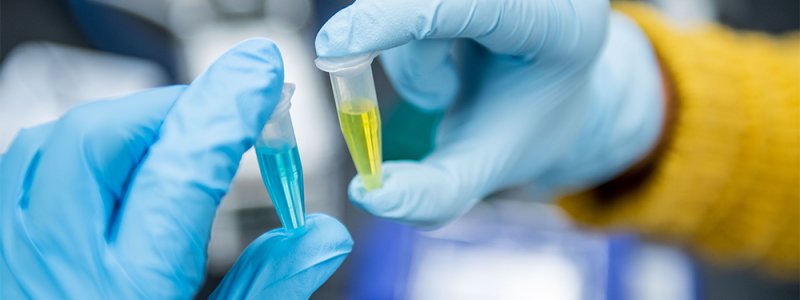Mission:
The SDSU Functional Genomics Core Facility (SDSU-FGCF) exists to facilitate interdisciplinary gene function research and training in viral, bacterial, plant and animal systems. This is accomplished by providing researchers with: 1) access to expensive, cutting-edge technologies (i.e. instrumentation) for functional genomics research at a minimal cost. 2) Training and support on the optimal uses of these technologies. 3) An opportunity to assist with and influence future purchases of functional genomics-related equipment.
Location
The primary SDSU-FGCF suite is located in the lower level (Room 047) of the Edgar S. McFadden Biostress Laboratory (SNP) and consists of three laboratory rooms containing various equipment necessary for studying the functions of genes.
The interactive map allows users to plot directions between buildings and show locations of highlighted features and services across the SDSU campus. Click on the image below to direct you to the SDSU interactive map.
How to obtain FGCF access
The FGCF is accessible 24/7 for registered users through keycard based access. All SDSU faculty and students can become registered users. Contractual arrangements can also be made for students, faculty and staff from other universities and for industry employees to become registered users. To gain access to the rooms and to use the equipment, you must first send Ryan Hanson an email providing the following information:
- Last name
- First name
- Email address
- Department
- Phone number
- SDSU ID number
- Person to be billed
Approximately one to two days after submitting this information, your SDSU student/faculty/staff ID card will be activated so that you can open the core's swipe-card door-system into the core suite. Your FGCF user name and password will be sent to you via email.
How to reserve and access equipment
To use any equipment in the FGCF, you must type your Pharos user name and password into the computer associated with the instrument. There is a pre-set maximum usage time for each instrument and the computer will shut down at the end of the allotted time. It will give you a short warning before shutting down, so it is very important to save any open computer files at that time. To end the billing period prior to the allotted time, you must log off of the computer (select "Start" then "Log Off"). Do not save any data on the computers in the FGCF because they will turn themselves off each night and all of the files saved during that day will be deleted.
You can use the equipment on a "walk-in" basis if no one is already using the instrument that you need. If you are using a SDSU campus computer, you can schedule a time-slot to use each instrument online.
The FGCF is primarily a user-run facility. As such, researchers are responsible for providing their own labor. Training is available upon request from the facilities manager, Liping Gu. Additionally equipment manuals for many pieces of equipment is also available upon request. Instrument maintenance is supported through user fees and associated prices.
Acknowledging FGCF use
Proper acknowledgement of the use of FGCF equipment helps the facility obtain financial and other support to continue to provide essential resources to support academic research on the SDSU campus. Use the following statement when acknowledging use of the FGCF on publications, posters and presentations.
“This material is based upon work conducted using the South Dakota State University Functional Genomics Core Facility (RRID:SCR_023786) supported in part by the National Science Foundation/EPSCoR Grant No. 0091948, the South Dakota Agricultural Experiment Station, and by the State of South Dakota. Research reported in this publication was supported by the National Institute Of General Medical Sciences of the National Institutes of Health under Award Number P20GM135008. The content is solely the responsibility of the authors and does not necessarily represent the official views of the National Institutes of Health."
Contributions of support staff beyond simple training may warrant additional acknowledgement, including potential authorship. Failure to appropriately acknowledge use of core resources may result in revocation of access.
Funding in part provided by:
- National Institutes of Health Centers of Biomedical Research Excellence Award No. P20GM135008.
- NSF EPSCoR Grant No. 0091948.
- Center of Excellence in Drought Tolerance through the South Dakota 2010 Initiative.
- SDSU College of Agriculture, Food and Environmental Sciences.
- South Dakota Agricultural Experiment Station.
- Department of Biology and Microbiology.
- Department of Pharmaceutical Sciences.


